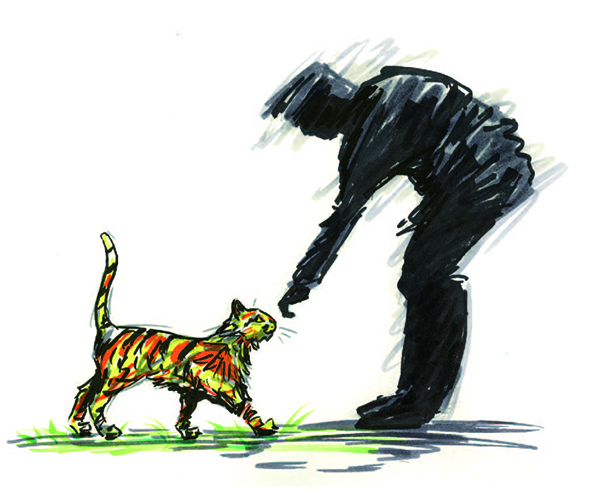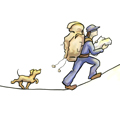What is stress?
Is stress healthy?
Imagine you’re walking through nature and there's a saber tooth tiger looking right at you. He looks at you seriously, he's interested in you. You are face to face. Then all the alarm bells inside you start ringing. This is a fight or flight response. All systems for action are in use. You’re anticipating, ready to do everything to save your life. Blood pressure is sky high; your heart rite raises to your throat; glucose levels are hyper; your breath is hyper or blocks; your muscles are vibrating cables; all fibers are hardened to absorb blows; you are super alert; angry, scared and all emotions mixed up; your pupils are like saucers; All your blood is programmed to provide physical violence, run or fight.
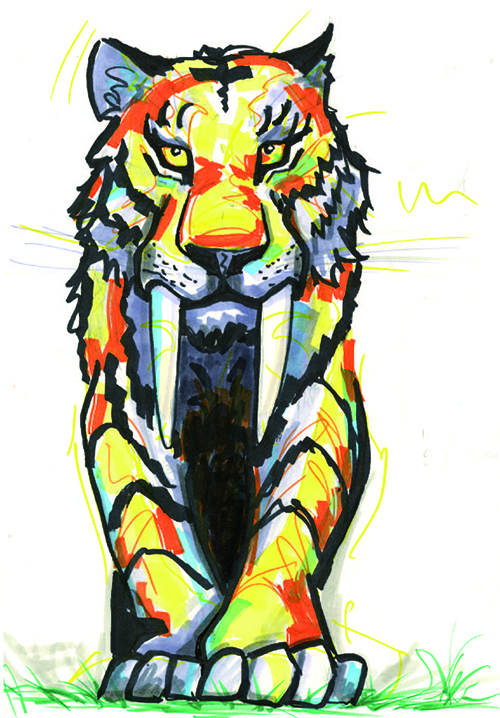
Of course, at that moment, there is no attention for food digesting, pains, an unstable ankle, a worn vertebra and so on. These signals are all suppressed. And you don't feel that scratch of his nail on your cheek either. You can run faster than ever and are stronger than you ever were. You're going to give him a tap and run away.
We don't live in the Jungle anymore.
Or still... in the modern jungle.
Modern jungle
Imagine you’re walking around town. Suddenly around a corner a car arrives, left a little late from home, driver just gets an app. Is rushed and not interested in you. He/she won't see you. The same system becomes effective.
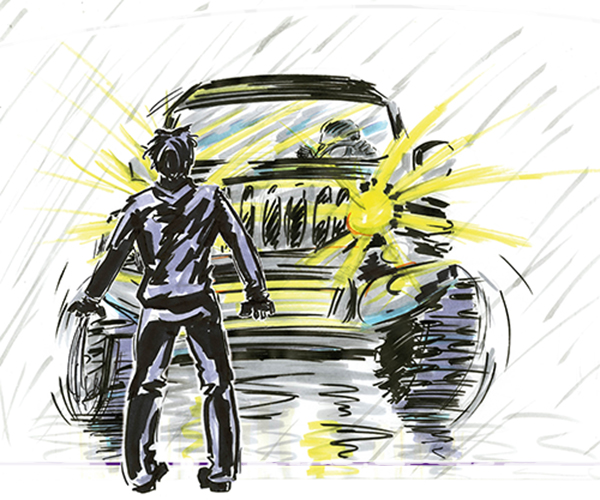
The system dates from early in evolution, but still valuable when it comes to emergencies. Although, we as humans, have intellectually developed further on and can control old systems, this old survival system takes over everything when in distress. Other things go on “hold” at that time. We don't encounter saber tooth tigers anymore, but we respond to other stressors with this same old system. This can be a situation at work, fears of managers; deadlines you don't seem to achieve; fear of failure; working pressure; a function, which is too heavy; customers who do not pay; quarrels and conflicts, but also memories of the past that are triggered again etc. Other concerns, such as problems in the home situation or a disappointing move.
A useful system for survival, not only in life-threatening situations, but also in other important situations. Like an exam or to save a suddenly falling antique expensive vase (from a transformation to 3D puzzle). It takes a lot of energy. Economic handling of energy means that other things, not needed for survival at that time, are put on a low level.
In all these situations you can persevere, carry on and continue with your life, thanks to this principle.
'Normal stress' has a stimulating effect. It ensures that we are alert, dare, learn, face challenges outside the comfort zone and develop further. This is what makes us grow.
Balance between load and loadability.
The body has a system to be in action on the one hand and to be able to recover on the other hand. It is a system, which one moment is committed to being able to perform, where degradation takes place and the other moment needs rest to restore this and to grow.
In action, for example, blood pressure is increased by the unconscious nervous system and hormones; heart rate goes up; glucose and fatty acids are made available for the rapid energy; breathing becomes more intensive; muscle tension increases; we become more irritable/alert; emotion also rises; pupils are growing bigger; more blood to the muscles (at the expense of organs); your blood thickens and clots faster against any injuries and all growth and build-up systems are stopped. Everything at the service of a decisive body state.
In rest, all these actions are reversed and all systems for recovery and construction are initiated. This process must be balanced in order to function properly and healthily.
It is roughly the balance between being active and recovering. This story is described very black and white. In reality, there is a lot of nuance and fine regulation. A subtle system to respond appropriately to the changing environment. One time you’re more stressed, the other time you're cheerful or excited with expectation. The autonomic nervous system and our hormones (hormones and neurotransmitters, such as adrenaline, cortisol, endorphin, serotonin and dopamine) can accurately regulate this. During activities of the daily activities, demolition takes place. Everything is restored at half-time, so that activities can be done again.
The balance of action and rest/recovery.
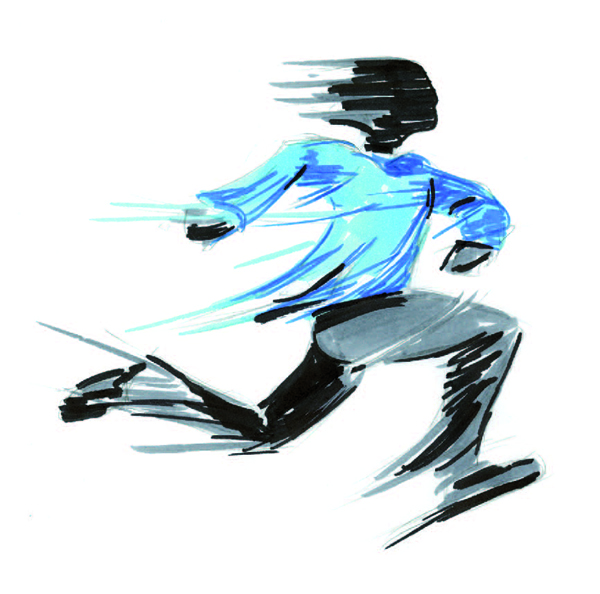
What happens at effort:
• glucose consumption
• oxygen consumption
• moisture loss
• nutrients consumption
• accumulation of waste
• accumulation CO2
• acidification
• overload tissues
• damage tissues (e.g. muscle pain)
• inhibition: growth, cell division, digestion etc.
What can you do to restore balance?
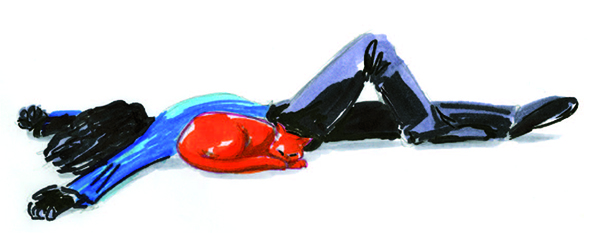
What happens in recovery /relaxation:
• cell division
• growth
• damage repair
• wound healing
• replenishing liquids
• waste disposal
• remove CO2
• absorbing nutrients / digestive
• supplement glucose storage liver and muscles
• thoroughly clean up toxins and infections
• 'reset' electrical system
After trauma, medical intervention or serious illness and a period of less exercise, there is therefore decay of load capacity (strength, stability, mobility and endurance). The way back can be long and starts with small steps with pain, fatigue and relapse. However, after recovering from these events, it is possible to rebuild more resistance.
Even after prolonged intense stress, especially in the case of a burnout, the load capacity has decreased. The recovery often goes slowly, because the body has no energy to make the recovery run smoothly.
Unconscious systems
All kinds of body processes are controlled by unconscious systems in the brain. Information, stored in the brain, can have constructive but also destructive influence on body processes. Such as the functioning of intestines, heart and blood vessels, body temperature, hormones, cell processes etc. We are therefore not aware of this. The unconscious system is also influenced by our conscious thinking. Our thoughts can therefore (indirectly) influence our body processes or health.
Stress and brain
Areas in the front part of the brain (behind the forehead) have a regulatory function. This allows us to regulate plans, realistic thinking, regulate emotions and behavior, make considered decisions, process new information and think flexibly. These areas have a regulatory and inhibitory effect on other parts of the brain. It turns out that in case of excessive negative stress, contact with this front part of the brain decreases. The brain is moving into a survival stand. If someone experiences prolonged stress, this can have an effect on functioning. One can notice this because the above functions work less well than before. E.g. it's harder to think carefully, social contact runs differently, often you see more negative factors and especially a lot of worrying. The environment may also indicate certain changes.
Prolonged stress
Due to the continuous alertness in the case of prolonged stress, muscle tension is long-term high, the muscles are constantly ready for action. Blood sugar levels are high to quickly supply energy to the muscles. Waste shoping and stocks are running out. One breaks down more than one can build up. Non-heavy physical exercise, such as walking and cycling, is good, because that triggers blood flow. This gradually rebuilds the load. In addition, it also stimulates blood flow in the brain.
Balance: :
Action - Stress - Development <=> Rest - Recovery - Growth
If there is a disbalance in this situation for a long time (more than half a year), which turns into action/stress and there is no room or time for recovery and growth, then becomes a risk. Other factors also affect this, such as construction, diseases, events, habits and nutrition.
The stress is not objectively given, but depending on one's own experience. How do you experience things when you lose control, such as:
• Uncertainty
• Pressure
• Setbacks
• Lose
• Nothing makes sense
• Disappointments
• Quarrel and conflicts
• Insults
• Blame
• Making mistakes or errors are pointed out
It is someone's own experience, but his or her experience can be influenced by e.g. the working atmosphere and expectations towards someone. In short, this balance of action, stress, pressure, etc. remains skewed for months; Is that menacing tiger going to stay around? Is he going to keep chasing you?
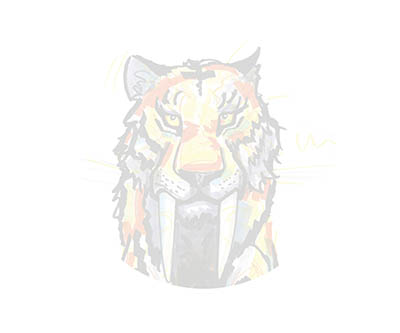
In the end, you lose sight of it.
The body has a strong self-reinstate ability. We can be overloaded for a long time. Depending on load and loadability, for months, and then recover well or even become stronger. But it has to get the opportunity in the end! Solution-oriented with rest for recovery.
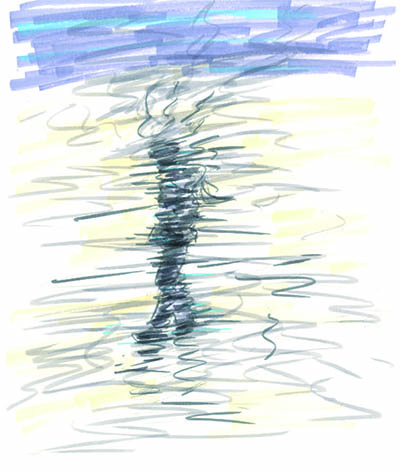
In modern society, it is increasingly difficult to close the door, especially in your head. Which means hardly any recovery. The balance goes to one side for a long time. It is always a combination of factors, situations, conditions and brain spins, which prevent long-term recovery. (The door does not close, it keeps flowing in, months, years).
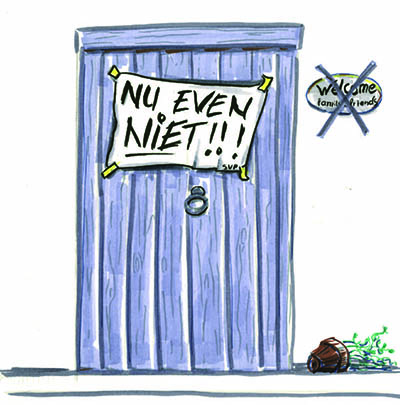
What happens in very prolonged stress/chronic stress?
• The body is ready for action fighting or fleeing for prolonged time.
• The system is not made for that, and it gets out of balance.
• There is continuous high energy consumption and a new balance develops.
• The survival mode is now becoming the new normal position.
• Structural changes are emerging.
What happens physiologically in chronic stress? This is a complex coherence, below a number of examples:
Non-stop Alert
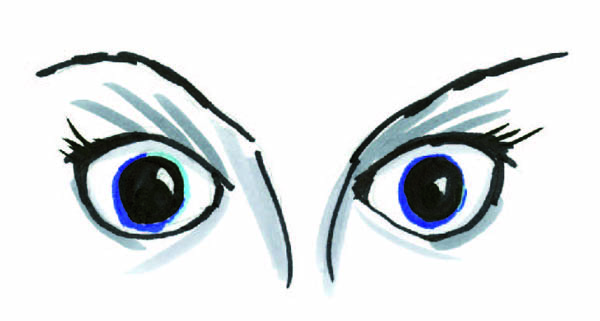
You're stuck in this state, day and night, month after month or even longer and you stay in this mood. That can't be good! You become irritable and look more tired. Often people can't sleep or sleep poorly, despite feeling tired and exhausted.
Nerves on 'high voltage’
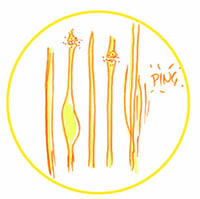
Nerves going to fire more and faster, resulting in pain, irritable, sensitive and sometimes vibrating. Structural changes may occur due to the new normal situation. The fine motor skills decrease; one often becomes more clumsy. Someone looks more emotional and irritable.
Muscle tension
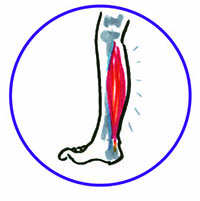
Muscles are prepared for action for prolonged period. Resulting in stiff neck/shoulder and back muscles. Complaints-arm-neck-shoulder (CANS, former term: RSI). Poorer muscle condition arises; strength and mobility become worse. Moreover, it is getting harder to release the tension, structural changes may occur.
Heart
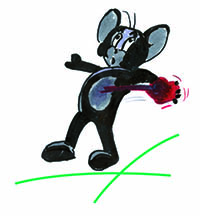
A prolonged higher frequency and faster pumping becomes normal.
Fuel, glucose
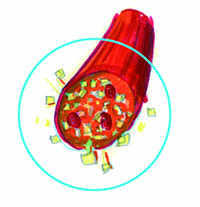
A long-term high glucose content can cause damage to organs. More so habituation arises, which makes organs less susceptible to glucose. Habituation can occur because the offer is too large for a long time. The absorption in cells is inhibited, because of the other interests (ready for fight-flight). Moreover, one often gets more appetite for sugar/starch. This in combination with 'no time' will easily lead to a quick bite, instead of healthy eating..
Blood pressure
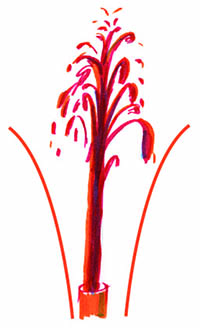
Prolonged high blood pressure is an increased risk of damage to blood vessels
Hyperventilation
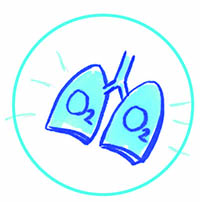
Store extra oxygen for the upcoming physical action (run or fight for your life). The physical action often does not happen (car, office situation). This causes disruption. It can make you feel restless.
Acidity (pH)

The right pH is important for all kinds of processes in the body. Our old system focuses on an expected physical action in the face of stress. A large physical action can cause great acidification. To be able to cope with this, it is wise to set the body a bit alkaline (base). Hyperventilation also causes this same effect. Handy with a short fierce action. A prolonged disruption of acidity causes an increase in the risk of vague complaints, cramps, shaking, damage and diseases..
Blood distribution
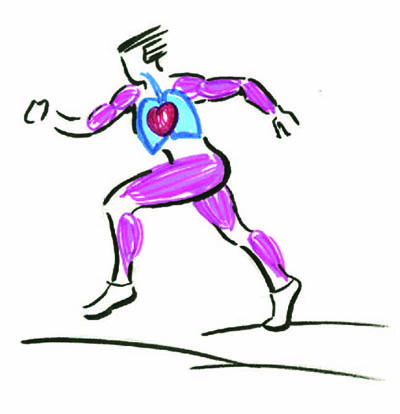
The blood supply is distributed in favor of muscles, heart and lungs for the purpose of the rapid action. Other organs and systems receive relatively little blood for a long time in chronic stress. This can affect organs, skin and digestion. In combination with reduced recovery, it makes the organs more vulnerable in the long run. The brain is also in the surviving mode or stand by, because that ‘tiger' can strike at any moment.
Metabolism
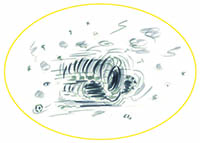
Converting energy.
Long-term high revs is not good for the 'engine'.
Maintenance is also required
Pain suppression
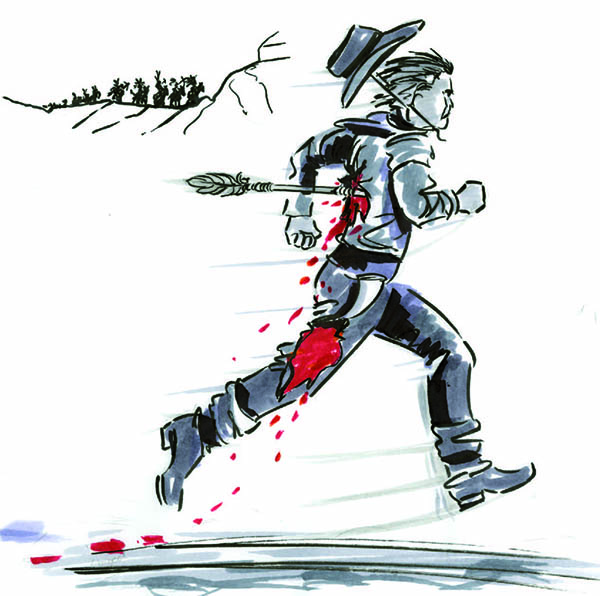
Pain is a useful signal to prevent more serious damage. Pain is not without a reason, not to bully, but to warn you. Experiencing pain is not useful during the struggle of survival. Leaving or defending is then the first issue. Ignoring signals about damage for too long, however, increases the risk that you will not notice the pain until it's too late.
Risk of damage and infection
The immune system is activated. Especially in order to quickly recover from damage and to prevent fatal blood loss. Blood clotting is stimulated for this purpose. Actions are deployed to prevent infections. Thorough maintenance/recovery will be postponed for later.
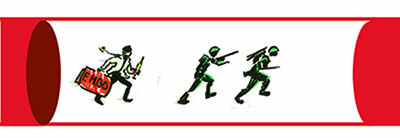
If blood clotting is stimulated too long, it can be lead to an increased chance of thrombosis. Thorough maintenance/repair and construction is further postponed, it remains 'patchwork'. Risk of immune system decontrol and dysfunction.
Hormones
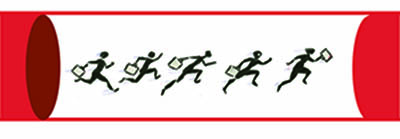
The hormone system is also continuously in that survival mode or stand by stand. On its own a complex regulatory mechanism. The long-term imbalance of hormones affects one’s mood with an increased risk of e.g. depressive feelings.
Known stress hormones include adrenaline and cortisol. Adrenaline is a huge consumer. This hormone makes it possible to think quickly, to act quickly and to make fast explosive actions. Cortisol mainly provides supplies. For example, think of increase blood glucose, partly by converting proteins into glucose, having oxygen available by stimulation of breathing and making substances available for survival, including everything that needs to be prepared for it. In chronic stress, the cortisol value will remain high.
Bad recovery
Due to chronic stress in the body recovery / growth / renewal / refresh/ maintenance etc. is suppressed for a long time.
Brain
An acute stress situation requires rapid action, so quick decision the order.
Switch to freeze-fight-flight. "Survival circuit takes over control." Survival is all that counts now. In the context of efficiency: Inhibition on all other circuits, which now only have a disturbing effect in this situation.
Useful, but when the stress is chronic, what happens then? We mention a few functions of two brain regions: the frontal lobe and the hippocampus ('seahorse')
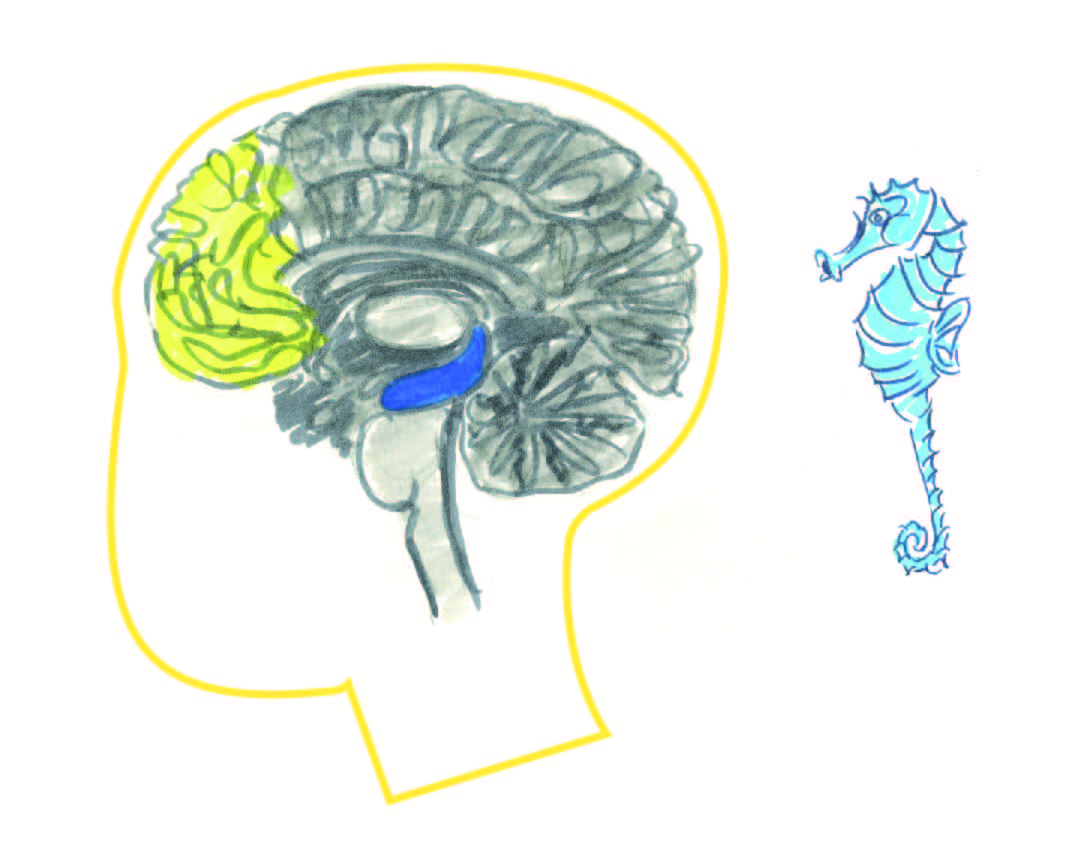
Frontal lobe (yellow):
• Overview
• Planning
• Empathy
• Inhibition unwanted behavior
• Clear thinking
Hippocampus (blue):
• Concentration
• Memory (save and retrieve)
• Spatial orientation
'Survival circuit takes over control'. The more stress one experiences, the more inhibition on higher brain systems takes place. Thinking is suppressed, it's harder to think clearly. In a survival situation intellectual tasks of the frontal lobe and the hippocampus are suppressed. In the case of life or death, it is extreme, but also in the case of a long-term survival situation, to remain vigilant for a long time, this is an issue. This will eventually have consequences such as:
• Overview becomes shortsighted;
• Planning is worrying;
• Empathy and inhibition becomes cynicism, irritability, self-centered/ anti-social behavior;
• One does not become nicer;
• Thinking and memory: One makes mistakes, forgets things and doesn't get the job done;
• One is becoming increasingly restless.
Someone tries to perform the same task, as what he/she is used to, but that is getting less and less successful. As a result, the same work is being tried with more stress. It becomes even more difficult and that takes even more energy, one is getting more tired and is going to work even more stressed. That is an attack on self-esteem etc. Someone ends up in a negative spiral.
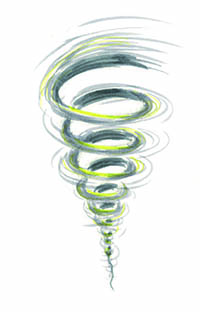
Research also shows that long-term and high cortisol content has a harmful effect on the hippocampus and the frontal lobe. How long can anyone last? One can last for months, after which recovery is possible. Depending on the intensity, fast and full recovery is still possible after six months. But the over achievers, often go on for much longer. For years they function on stress hormones, suppress the signals while the physical is already exhausted. The over achievers, the strivers, the one’s always feels responsible, the always ready types, the always dependable one’s, the pleasers, with the fear of failure, perfectionists, the silent workers. Often in combination with other circumstances, such as burdensome private situations.
These hard workers are often more at risk.
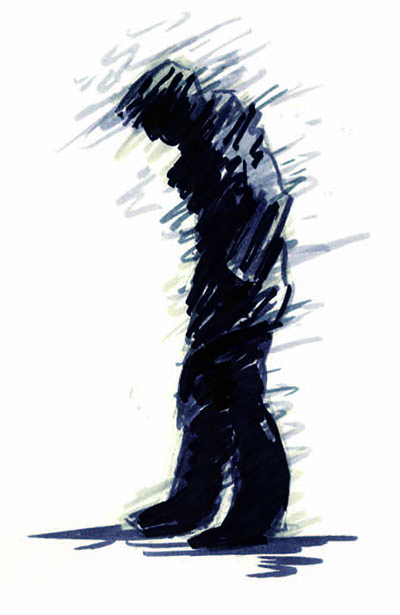
At some point, it just happened.
In the end someone gets robbed.
There is mainly accumulation of waste.
The systems are unregulated. Prolonged damage can be the result.
The energy is gone, the stored reserves are used, the extra reserves are used and emergency ration is empty.
Stress hormones are running out/stress system becomes exhausted.
At work, they are going to function worse and worse.
People struggle on until finally collapse and will not be able to function any longer
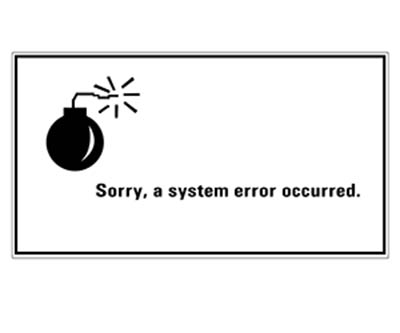
It expresses itself differently.
Depending on genetic factors, past experiences, traumas, infections, habits, diseases, lifestyle, etc. Everyone has a different weak link and it breaks first.
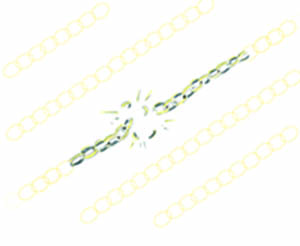
Fighting against this event is therefore not a convenient solution (even more stress). Better is trying to recognize and accept that this is the situation now. It's time to put rest in the head, easy physically moving and to do things differently.
The thing is to tackle the tiger and see things in perspective.
In case of high-level stress, it is important to deal with this consciously. Signaling in time can prevent a lot of misery.
Attention, help and guidance from the organization is important here. Make things negotiable. Ask for that guidance in time. Recovery is possible, of course, depending on duration, severity and other factors
